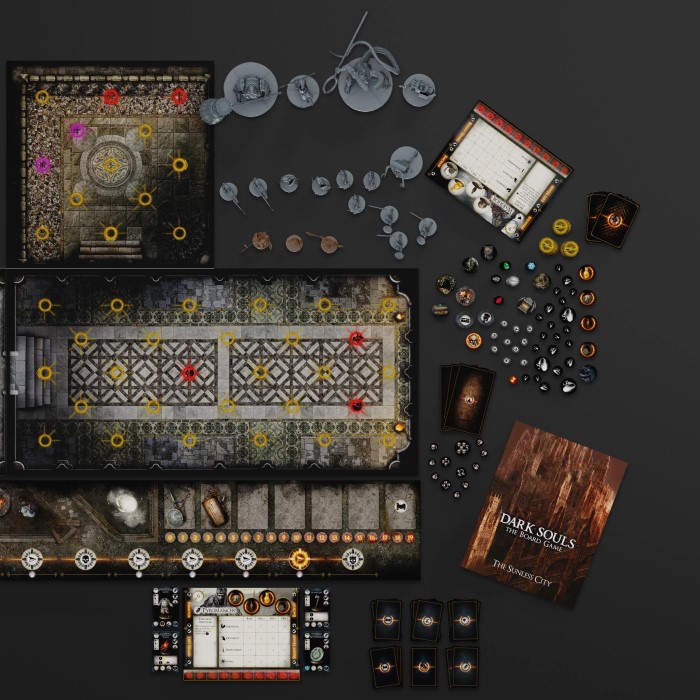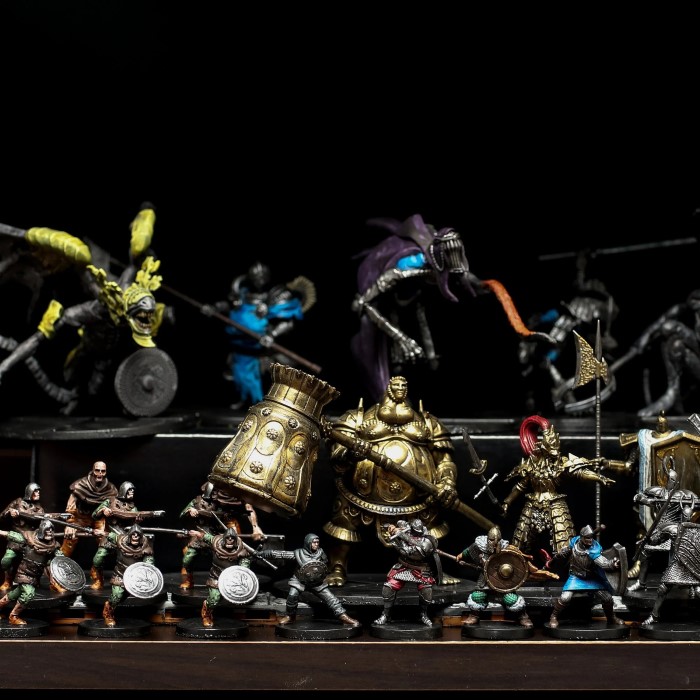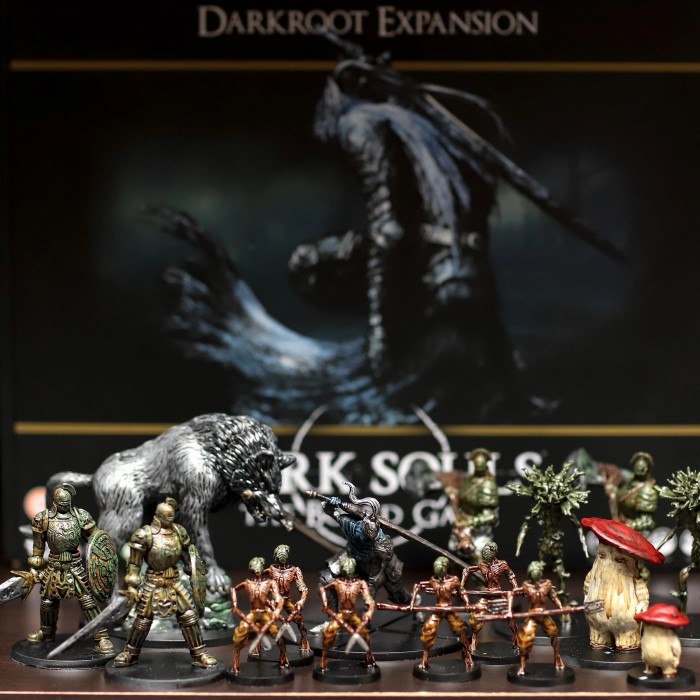Introduction
The dark souls the board game is inspired by the popular video game series. It brings the intense gameplay experience of the dark fantasy world directly to your table. Developed by Steamforged Games, it blends strategy, cooperation, and challenging combat into one immersive package.
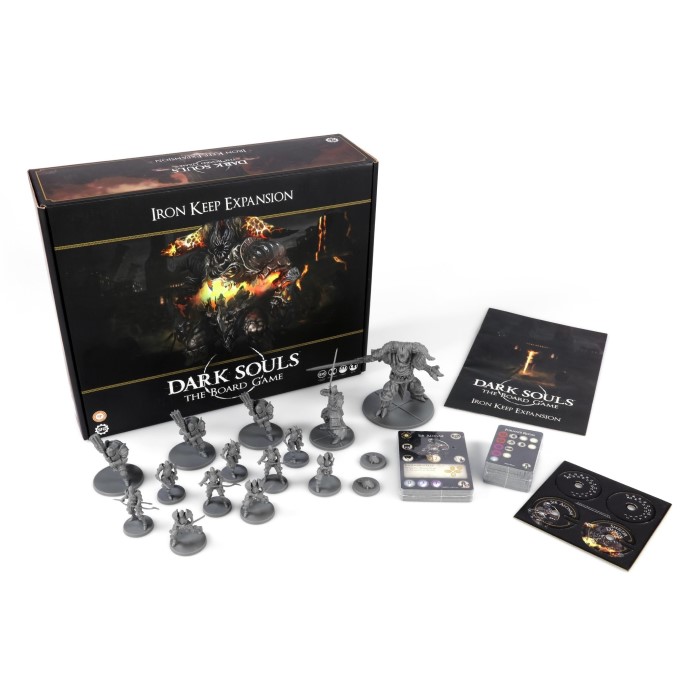
What is Dark Souls: The Board Game?
Dark Souls: The Board Game is a cooperative dungeon exploration game. Players face powerful enemies and bosses as they venture through dangerous terrains. The game supports 1-4 players, focusing on teamwork and strategic planning. Combat is tactical, with each move requiring careful thought and resource management.
The game centers around stamina management and punishing encounters. It mirrors the video game’s unforgiving nature while giving players time to plan their moves. Careful execution is key to survival, adding tension and excitement to every game session.
How it Connects to the Video Game Series
The board game skillfully captures the essence of the Dark Souls video games. Its design reflects the difficulty and world-building that fans cherish. Iconic characters, locations, and mechanics from the series are recreated in physical form.
Combat mechanics mimic the stamina-based system seen in the video games. Boss battles feature unique, complex patterns to challenge players. The lore-filled miniatures and detailed game board transport players into the Dark Souls universe. Fans of the series will immediately recognize the level of dedication in connecting the two mediums.
Core Gameplay Mechanics
Understanding the core gameplay mechanics is essential for mastering Dark Souls: The Board Game. These mechanics drive the exciting and strategic experiences players encounter during each session.
Exploration and Combat System
The game features a rich exploration system complemented by tactical combat. Players move through interconnected, tile-based environments while uncovering hidden dangers. These terrains mirror the intricate layouts of the Dark Souls video game series. Each step offers suspense, as players discover enemies, traps, and valuable loot.
Combat is highly engaging, focusing on strategy and precision. Encounters with enemies require careful planning and stamina management. Each enemy has unique attack patterns, forcing players to adapt and strategize on the spot. Boss battles introduce complex mechanics, including multi-stage fights and unpredictable attacks, adding layers of challenge and excitement.
Player Roles and Cooperation
Dark Souls: The Board Game emphasizes teamwork and coordination. Players choose different character classes, each with unique abilities and attributes. These roles include warriors, assassins, knights, and mages, reflecting the video game’s character diversity.
Cooperation is vital as players face powerful enemies and challenging scenarios. Success depends on effective communication and leveraging individual strengths. Working together allows players to manage threats, recover resources, and defeat foes efficiently.
Resource Management and Strategy
Resource management plays a critical role in the game. Players track stamina, health, and equipment durability as they progress. Misusing resources can lead to defeat, requiring meticulous planning and prioritization.
Strategic decision-making ensures survival in tough situations. Choosing when to attack, defend, or retreat is vital. Players must also decide how to use items like healing potions and upgrade opportunities. Smart strategies pave the way for progress and eventual victory, keeping gameplay rewarding and tense.
Components and Design
Miniatures and Game Pieces
Dark Souls: The Board Game features highly detailed miniatures. Each miniature represents iconic characters and enemies from the Dark Souls universe. The miniatures are designed with exceptional precision, bringing the grim world to life. Boss figures are larger and more intricate, highlighting their importance in gameplay.
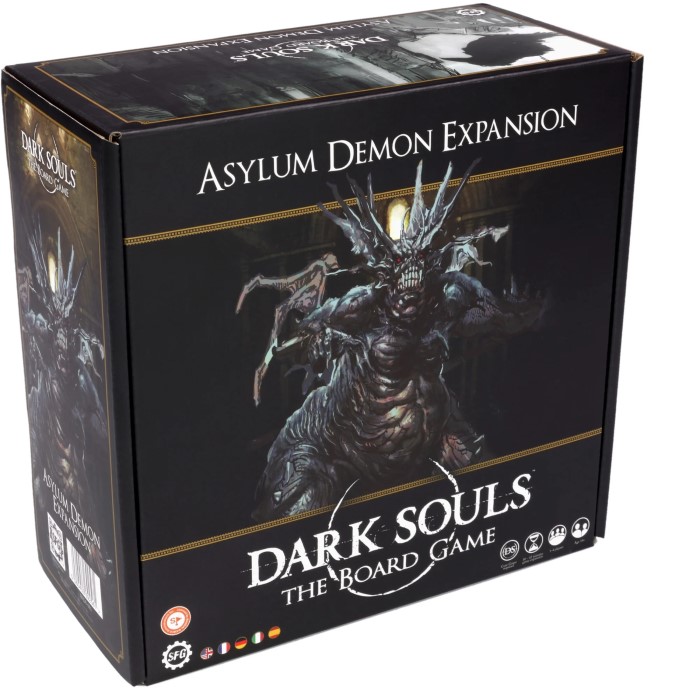
Game pieces include tokens, dice, cards, and player boards. These components aid players in tracking resources, equipment, and progress. They are visually consistent with the dark fantasy theme, enhancing the immersive experience.
Board Design and Layout
The game board consists of tile-based layouts, reflecting the interconnected environments of Dark Souls. Players explore modular tiles, which can be configured for unique setups. These layouts create varied challenges and replayability.
The board design captures the essence of the video game dungeons. Every tile reveals dangers, secrets, and opportunities. The detailed visuals maintain the grim atmosphere players expect from Dark Souls.
Quality of Materials Used
Steamforged Games has crafted the components with durable and high-quality materials. Miniatures are made of solid plastic, ensuring lasting use during repeated gameplay sessions. Cards and tiles use heavy-duty materials for resistance to wear and tear.
The design and production ensure a premium presentation. This quality extends to all parts, from tokens to player boards. The craftsmanship matches the intense and detailed world Dark Souls fans admire.
Features and Expansion Content
Dark Souls: The Board Game offers diverse features and expansions that enrich the core experience. These additions enhance the replayability and depth of the game, ensuring long-term enjoyment for players.
Boss and Enemy Variety
The game includes a wide range of bosses and enemies, each with unique designs and tactics. These foes are inspired by the Dark Souls video game series, featuring familiar characters and chilling opponents. Their intricate attack patterns challenge players to think strategically during every encounter. Bosses, in particular, offer multi-phase battles that add intensity and reward careful planning. The variety of enemies keeps the gameplay fresh and engaging, offering new challenges each time.
Available Game Expansions
Several expansions are available to extend the game’s content and complexity. These expansions include new bosses, characters, and enemy types. They also add unique terrain tiles, weapons, and abilities for players to explore. Popular expansions like “The Four Kings” and “Darkroot Basin” introduce fresh challenges and lore. Each expansion seamlessly integrates with the base game, offering fans more options and adventures.
Replayability and Challenges
Dark Souls: The Board Game is designed for high replayability. The modular tiles and randomized encounters ensure no two playthroughs are identical. Players can try different character classes and strategies for varied experiences. The unpredictable nature of enemy behaviors and loot keeps players on their toes. Expansions increase replayability by introducing new content and scenarios. Together, these elements create a dynamic environment, making every session as thrilling as the first.
How to Play Dark Souls Board Game
Learning how to play Dark Souls: The Board Game is essential for an enjoyable experience. This section explains the setup, structure, and progression rules to help players dive in confidently.
Setting Up the Game
- Unbox and Organize: Prepare all components, including miniatures, tiles, cards, dice, and tokens.
- Select Scenario: Choose a scenario card, which outlines the enemies, bosses, and objectives.
- Arrange Tiles: Assemble the modular tiles according to the scenario map.
- Choose Characters: Each player selects a character class, such as knight or assassin.
- Distribute Equipment: Assign starting weapons, armor, and items based on character class.
- Prepare Enemy Deck: Shuffle and prepare encounter decks for regular foes and bosses.
- Set Up Player Board: Players place stamina, health, and equipment trackers on their boards.
Once the setup is complete, players are ready to embark on their adventure.
Turn Structure and Player Actions
The game progresses in turns, divided into distinct phases:
1. Player Actions:
- Move: Navigate the tile-based board to explore new areas.
- Interact: Pick up loot, open chests, or activate traps.
- Attack: Use weapons or abilities to deal damage to enemies.
- Manage Resources: Adjust stamina and health carefully to avoid penalties.
2. Enemy Actions:
- Enemies Activate: Follow preset behavior patterns indicated on their cards.
- Counterattacks: Enemies retaliate if players are within range.
3. Rest Phase (Optional):
- Rest at Bonfires: Players can reset their health and resources but revive defeated enemies.
Each player must collaborate and plan actions wisely to advance through the game.
Winning Conditions and Game Progression
Victory Conditions:
- Defeat Bosses: Players win by vanquishing the final boss of the selected scenario.
- Complete Objectives: Some scenarios may include additional goals, such as item retrieval.
Game Progression:
- Advance Through Tiles: Uncover new terrains and face escalating challenges.
- Manage Resources: Balance health, stamina, and equipment durability to survive.
- Upgrade Equipment: Spend souls earned from defeating enemies on powerful gear.
- Prepare for Boss Fights: Use downtime wisely to ensure victory in complex boss battles.
By understanding these steps, players can fully enjoy the immersive challenges of Dark Souls: The Board Game.
Target Audience and Complexity
Who is the Game Suitable For?
Dark Souls: The Board Game appeals to fans of dark fantasy and challenging games. It’s perfect for those who enjoy strategy and cooperative gameplay. Players who love the Dark Souls video game series will appreciate its faithfulness to the source material. The game’s complexity attracts serious board gamers seeking deep tactical experiences. It’s also ideal for groups of 1-4 people who enjoy working together to overcome obstacles. Role-playing enthusiasts will enjoy selecting character classes and customizing their gameplay styles. However, casual gamers might find the rules and difficulty overwhelming.
Difficulty Level for Beginners and Experts
The game offers varying challenge levels suitable for both beginners and experts. Beginners can start with simpler scenarios to understand basic mechanics like combat and resource management. Tutorials or experienced players can guide newcomers through the setup and initial turns. However, the game’s unforgiving difficulty and strategic depth make it rewarding for seasoned players. Experts can tackle advanced scenarios featuring tougher enemies and bosses with complex mechanics. The modular tile system and expansions also allow customization of difficulty. Overall, the game challenges all players but rewards patience, learning, and teamwork.
Tips and Strategies
Learn how to master Dark Souls: The dark souls the board game with these essential tips. Focus on refining combat strategies, managing resources, and working efficiently with your team.
Strategic Approaches to Combat
Combat in Dark Souls: The Board Game demands thoughtful planning. Use these approaches to increase your chances:
- Study Enemy Patterns: Observe recurring attack movements and prepare counter-strategies. Anticipation leads to survival.
- Plan Actions Wisely: Calculate whether to attack, defend, or evade based on stamina and enemy threats.
- Utilize Cover: Position yourself behind terrain or objects to shield against enemy attacks.
- Prioritize Boss Weaknesses: For bosses, identify areas of vulnerability and focus attacks on these spots.
- Spread Damage: Work as a team to minimize individual health losses during fights.
Resource Optimization Techniques
Managing resources is critical for survival. Here’s how you can optimize them effectively:
- Monitor Stamina Closely: Avoid draining stamina fully by balancing attack and defense actions carefully.
- Use Items Strategically: Save healing potions for moments of severe health drops, not minor injuries.
- Upgrade Essentials: Spend earned souls on weapons and armor offering high long-term value.
- Choose Equipment Wisely: Equip gear suiting your role and supporting the group’s strategy.
- Limit Risk: Avoid unnecessary fights that could lead to excessive resource depletion.
Collaborating Effectively with Other Players
Teamwork enhances survival rates. Collaborate efficiently with these strategies:
Coordinate Actions
- Collective Planning: Before engaging in combat, gather your team to discuss and plan your movements. This allows all players to understand their roles and positions relative to the enemies.
- Outflanking Strategy: Work together to create a strategy that involves surrounding enemies. Utilize distractions and diversions to draw the attention of foes away from certain players, making it easier to flank them.
- Minimize Individual Risk: By coordinating your actions as a team, you can reduce the risk faced by individual players. This ensures that no single player is isolated or overwhelmed by enemy attacks.
- Access to Healing Potions: Designate specific players to carry healing items, ensuring they can distribute these potions effectively during combat. Share these valuable resources with those who need them most.
- Equipment Upgrades: Allow teammates to borrow or utilize upgraded gear when necessary. This practice can give players an edge in tougher battles, especially when facing powerful enemies.
- Encourage Communication: Make sure that players feel comfortable asking for or offering resources, fostering a spirit of teamwork and collaboration.
Diversify Roles
- Role Specialization: Assign specific roles to each player to ensure that all aspects of combat are covered. For example, designate one player as a dedicated attacker, another as a defender, and a third as a healer.
- Benefits of Specialized Roles: Specialization allows players to master their roles and make better use of their strengths, leading to more efficient combat strategies.
- Adapt to Dynamics: Be open to adjusting roles based on the situation. If a player excels in multiple areas, they may switch roles as needed to respond to enemy threats effectively.
Plan for Bosses
- Pre-Boss Strategies: Before facing a boss, gather the team to devise strategies tailored specifically for that enemy. Discuss potential attack patterns and weaknesses based on past experiences or known information.
- Countering Multi-Phase Attacks: Analyze the boss’s behavior during its multi-phase attacks and develop a plan for each phase. Identify when healing or defensive maneuvers are necessary, and ensure that everyone knows their specific tasks.
- Establish Communication Roles: Assign someone as the primary communicator during boss battles to relay essential information quickly. This ensures everyone remains focused on executing the strategy rather than being distracted by the chaos of battle.
Communicate Constantly
- Regular Updates: Keep an open line of communication throughout the game. Provide updates on enemy movements, especially when enemies attempt to flank or ambush your group.
- Resource Availability: Regularly check in with teammates about the status of healing items, equipment, or any other critical resources. This ensures everyone is aware of available tools that can help in combat.
- Notify About Nearby Threats: Quickly inform teammates about any emerging threats or unexpected enemy actions that could jeopardize the team’s strategy. This proactive communication can prevent ambushes and surprises during gameplay.
By mastering these tips, players can navigate the challenges and complexity of Dark Souls: The Board Game with success.
Conclusion: Epic Adventures Await
In summary, Dark Souls the Board Game is an engaging tabletop experience that captures the essence of the beloved video game series. Its intricate mechanics, cooperative gameplay, and the necessity for strategic thinking create an epic adventure filled with challenges. By understanding the gameplay and enemy behaviors, preparing adequately, and employing effective strategies, you can truly immerse yourself in the world of Dark Souls.
As you dive into epic gameplay today, remember to encourage collaboration, prioritize exploration, and make use of each character’s strengths. The world of Dark Souls awaits with challenges that will test your skills and adaptability. Prepare for endless adventures, and may your journeys lead you to victory!
